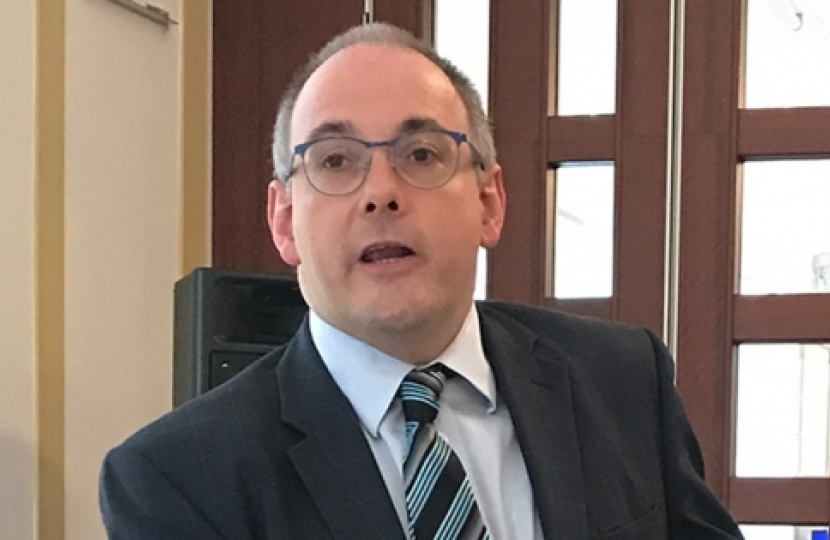
First published in Conservative Home, 17 June 2020:
Free school meals: “This is not about politics; this is about humanity” – Marcus Rashford
As a lifelong Chelsea supporter, it’s not often that I have such high praise for a Manchester United footballer, but Marcus Rashford’s impassioned letter to the Government urging for free school meals over the summer holidays captured the public’s imagination.
Rashford ran a textbook campaign; he knew about food hunger having lived through it as a child; he raised millions for food charities, and he didn’t attack one political party or another – he just set out his case decently and with finesse. If I was Boris Johnson, I’d put him in charge of the Social Mobility Commission, because he would be a role model for the millions of young people wishing to climb the ladder of opportunity.
The argument for free school meals resonated because it’s a totemic scheme that is easy for the public to understand, and much less bureaucratic than applying to the Council for hardship payments. It also comes at a time when the public don’t just face health worries, but enormous financial anxiety. 600,000 people are no longer on the payroll in this country and the number of people claiming work-related benefits is up by 126 percent.
Huge credit to Gavin Williamson and Vicky Ford for understanding the public mood and listening.
Only just catching-up: Why we need vision from the top for left-behind pupils
Quoting the Education Endowment Foundation (EEF)’s latest statistics, a Department for Education official said recently that the lockdown would almost certainly have “a very significant impact on the attainment gap… the predictions are stark: up to a 75 per cent widening”.
We need vision from our Prime Minister to take forward a drastic agenda for education if we are to avoid a wave of education poverty crashing down on the life chances of millions of children. All the while pupils are not in school, disadvantaged children are falling further behind their better-off peers.
A recent University College London report shows that 2.3 million children have not been learning in lockdown, and that four million pupils have not had regular contact with their teachers. That came on top of other surveys that have suggested 55 percent of teachers from the most disadvantaged schools think that the average pupil in their class is learning for less than one hour a day, according to Teacher Tapp; and a recent survey of headteachers found that 700,000 children are not doing any school work at all.
So, it was encouraging to hear from Boris Johnson himself during the Government’s daily briefing on 10 June that it will be coordinating a huge programme of catch-up support for pupils over the summer months.
According to the EEF, with one hour of tutorials every week for 12 weeks, a child can make up five months of learning in a subject. Together with education and tutoring charities, organisations and passionate individuals, I’ve been working for some time now on proposals for catch-up tuition and pastoral care.
With the same impetus we had from the Prime Minister for the NHS Responders, we could establish a national education army of volunteers to provide tuition to disadvantaged pupils. Tutors would include graduates, retired teachers and redeployed Ofsted inspectors, all supported by education, safeguarding and mental health charities.
Of course, extra tuition comes at a price. Depending on the model of tuition, the cost per-pupil of delivering tuition under current programmes ranges from £100 to £700. To take a mid-range proposal of £400 per pupil (as Action Tutoring currently offers) in one subject, this would cost around £560 million to roll out to every free school meal pupil. Delivering tuition in English and Maths, for example, to all pupils eligible for free school meals would point to a bill of around £1.12 billion.
The Education and Policy Institute (EPI), run by David Laws, proposes a more expensive model, recommending doubling the pupil premium for one year to cover catch-up tuition.
Alan Turing Summer Schools
The “summer slide” could account for as much as two thirds of the attainment gap between rich and poorer pupils at age 14. As such, the upcoming school holidays present a further challenge to the unfurling education crisis.
This nation saw an incredible response from the Government tackling the health pandemic. NHS Nightingale Hospitals sprung up across the country, with the first in London’s Excel Centre established in less than a fortnight. Now is the time to take a similar response – with the same sense of urgency – to the education pandemic.
Schools, community and youth centres, businesses and sports halls should be transformed into ‘Alan Turing Summer Schools’ – temporary spaces to offer catch-up learning, extra-curricular activities and pastoral care for our children.
The benefits of creating a physical space for children to attend when they are not in school extend beyond academic outcomes. In Iceland, their rigorous programme of after-school clubs and tuition (including a £250 Leisure Card for families in Reykjavik to cover recreational activities) has seen enormous results for young people, their families and society.
Between 1997 and 2012, children participating in sport at least four times a week increased from 24 percent to 42 percent. The proportion of 15- and 16-year-olds who reported “often or almost always” spending time with their parents on weekdays also doubled, from 23 percent to 46 percent. Further, Iceland tops the tables for the cleanest-living teens, with cigarette smoking, drinking and cannabis use plummeting in recent years.
Summer schools in the UK could go some way to reaping some of these same benefits, offering our children and young people engaging activities and having deep social impact.
Of course, since I proposed this idea, I have received plenty of suggestions that the schools be named after Robert Owen or Friedrich Froebel. But the crux remains the same: we must ensure that the summer holidays are used for catch-up, not a missed opportunity.
A National Education Broadcasting Service
The digital divide in this country means that children’s experiences of home learning is varying enormously. For one, the Children’s Commissioner has estimated 700,000 children do not have any laptop, tablet or online connectivity.
Despite the Government’s £100 million scheme to offer 230,000 laptops and 4G internet hotspots to Year 10 pupils and those with a social worker, as well as online initiatives including the Oak Academy, thousands of children are still missing out.
However, 95 percent of households have a television. So why not build on the BBC Red Button offer to establish a free-to-air National Education Broadcasting Service? For a few hours each day, lessons would be shown to children in their own homes.
Given that Channel 4, as one of main public service broadcasters, has a statutory remit to produce content for older children, it could be encouraged to produce much more educational content on its main television channels, in addition to putting out online material.
The Government has done an extraordinary amount of work in terms of the health and economy of the country; now we must turn our efforts to education. Our Party must be the champions of the education ladder of opportunity and social justice.
Should the Prime Minister put himself behind a passionate vision for education with some of these ideas above, this could make a huge difference to the lives of children, parents, teachers and support staff across the nation.
